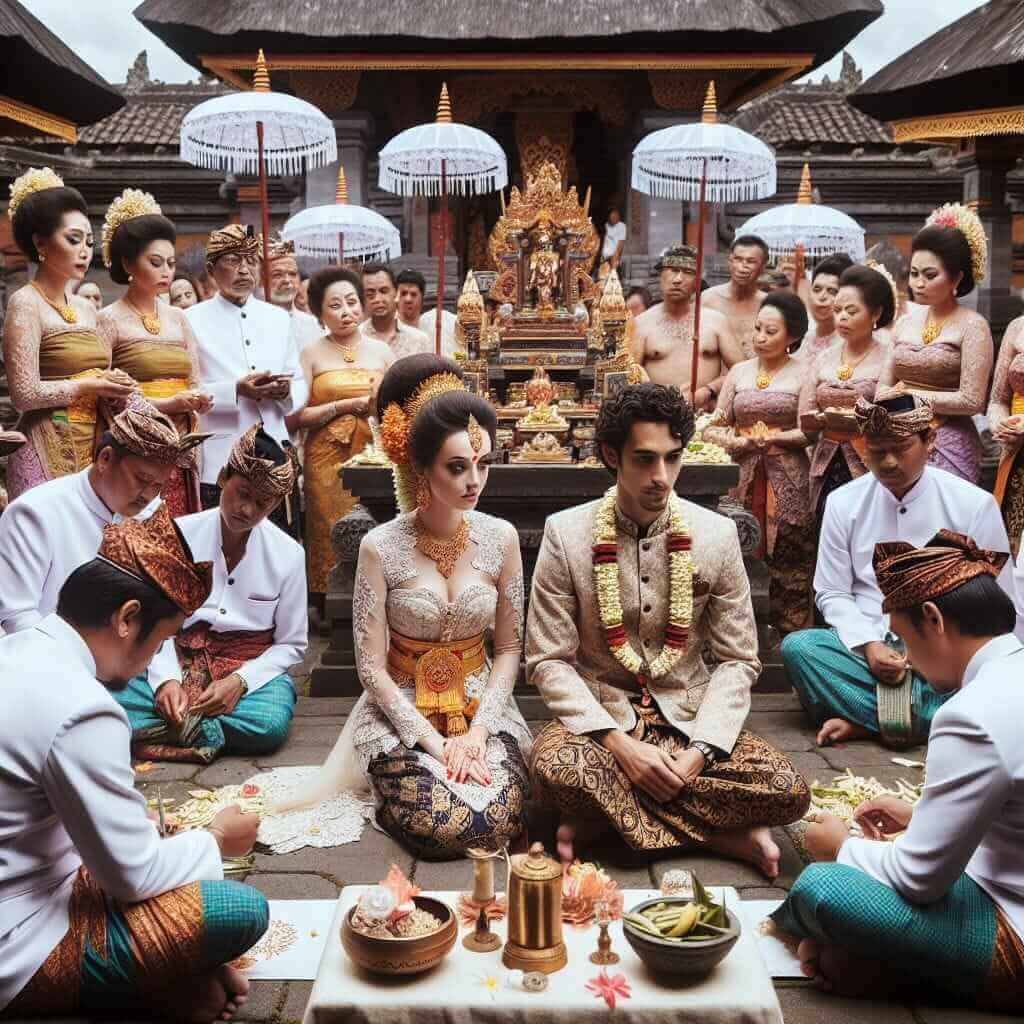In the IELTS Speaking exam, candidates often encounter topics that require them to describe various experiences. One such common topic is “Describe a time when you attended a religious ceremony“. Excelling in this part of the exam requires a clear structure, rich vocabulary, and fluent communication. In this detailed guide, we’ll explore how to construct an impressive response and provide a sample answer to help you prepare.
Table Of Contents
I. Introduction
The IELTS Speaking exam is divided into three parts: Part 1 (Introduction and Interview), Part 2 (Long Turn), and Part 3 (Two-way Discussion). Each part tests different aspects of your speaking abilities, including fluency, coherence, vocabulary, and pronunciation. As an examiner, I will particularly focus on:
- Fluency and Coherence: How naturally and logically you speak.
- Lexical Resource: The range and accuracy of your vocabulary.
- Grammatical Range and Accuracy: Correct use of grammar and structures.
- Pronunciation: Clarity and variation in pronunciation.
The topic “Describe a time when you attended a religious ceremony” is common and allows you to use descriptive language and personal anecdotes, making it an excellent choice to demonstrate these skills.
II. Main Content
Part 1: Introduction and Interview Questions
Common Questions:
- Do you follow any religion?
- How often do you attend religious ceremonies?
- What was the last religious ceremony you attended?
Sample Answer:
“Yes, I do follow a religion. I’m a practicing Christian, so I attend church services quite regularly. The most recent religious ceremony I attended was an Easter service at my local church. It was a beautiful experience with meaningful sermons and uplifting hymns.”
Part 2: Long Turn (Cue Card)
Cue Card:
Describe a time when you attended a religious ceremony.
- What the ceremony was
- Where and when it took place
- Who attended the ceremony
- What happened during the ceremony
- Explain how you felt about attending the ceremony
Sample Answer:
“One religious ceremony that stands out vividly in my memory is the traditional wedding of my cousin that I attended last summer in Bali, Indonesia. The ceremony took place in a large, beautifully decorated temple overlooking the ocean.
Family and friends from around the world gathered to witness and celebrate this union. The ceremony encompassed various traditional rituals, which included offerings to the deities, chanting of holy scriptures, and a mesmerizing dance performance showcasing the local culture. The bride and groom exchanged vows under a canopy decorated with vibrant flowers, and the entire atmosphere was one of joy, reverence, and communal harmony.

I was particularly moved by the sense of unity and spirituality that permeated the event. The rhythm of the traditional music, the smell of incense, and the collective prayers created an unforgettable ambiance. Attending this ceremony allowed me to appreciate the richness of different cultural traditions and the profound impact they have on people’s lives.“
Follow-up Questions:
-
How are religious ceremonies important in your culture?
- Answer: “In my culture, religious ceremonies are crucial as they symbolize important life events and serve as a means to bring the community together.”
-
What are some common rituals practiced in religious ceremonies in your country?
- Answer: “Common rituals include praying, singing hymns, and performing specific rites based on the occasion, all aimed at seeking blessings and expressing gratitude.”
Part 3: Two-way Discussion
Examiner’s Questions:
-
Why do you think people attend religious ceremonies?
- Sample Answer: “People attend religious ceremonies for various reasons, such as spiritual fulfillment, a sense of community, tradition, and guidance in moral values. These ceremonies often provide a sense of belonging and are a source of comfort and support.”
-
How have religious ceremonies changed over time in your country?
- Sample Answer: “In my country, religious ceremonies have evolved to incorporate modern elements like technology for broadcasting events, simplifying rituals to adapt to urban lifestyles, and becoming more inclusive by integrating interfaith dialogues.”
III. Vocabulary and Phrases for High Scores
Important Words and Phrases:
- Ceremony /ˈser.ɪ.mə.ni/: (n) A formal event held on a special occasion.
- “The ceremony started with a traditional dance.”
- Ritual /ˈrɪtʃ.u.əl/: (n) A series of actions performed according to a prescribed order.
- “The baptismal ritual was quite moving.”
- Ambiance /ˈæm.bi.ɑːns/: (n) The character and atmosphere of a place.
- “The ambiance of the temple was serene and peaceful.”
- Spiritual /ˈspɪr.ɪ.tʃu.əl/: (adj) Relating to or affecting the human spirit or soul.
- “The ceremony had a profound spiritual dimension.”
- Unity /ˈjuː.nɪ.ti/: (n) The state of being united or joined as a whole.
- “The festival fostered a sense of unity among the attendees.”
IV. Tips for High Scores
- Practice Regularly: Consistent practice helps improve fluency and confidence.
- Expand Your Vocabulary: Use varied and precise vocabulary to express your thoughts clearly.
- Speak Clearly: Focus on clear pronunciation and natural intonation.
- Stay Calm: Manage your stress levels to maintain coherence and logical flow.
By incorporating these strategies and practicing diligently, you can excel in the IELTS Speaking exam and demonstrate your proficiency effectively. Good luck!